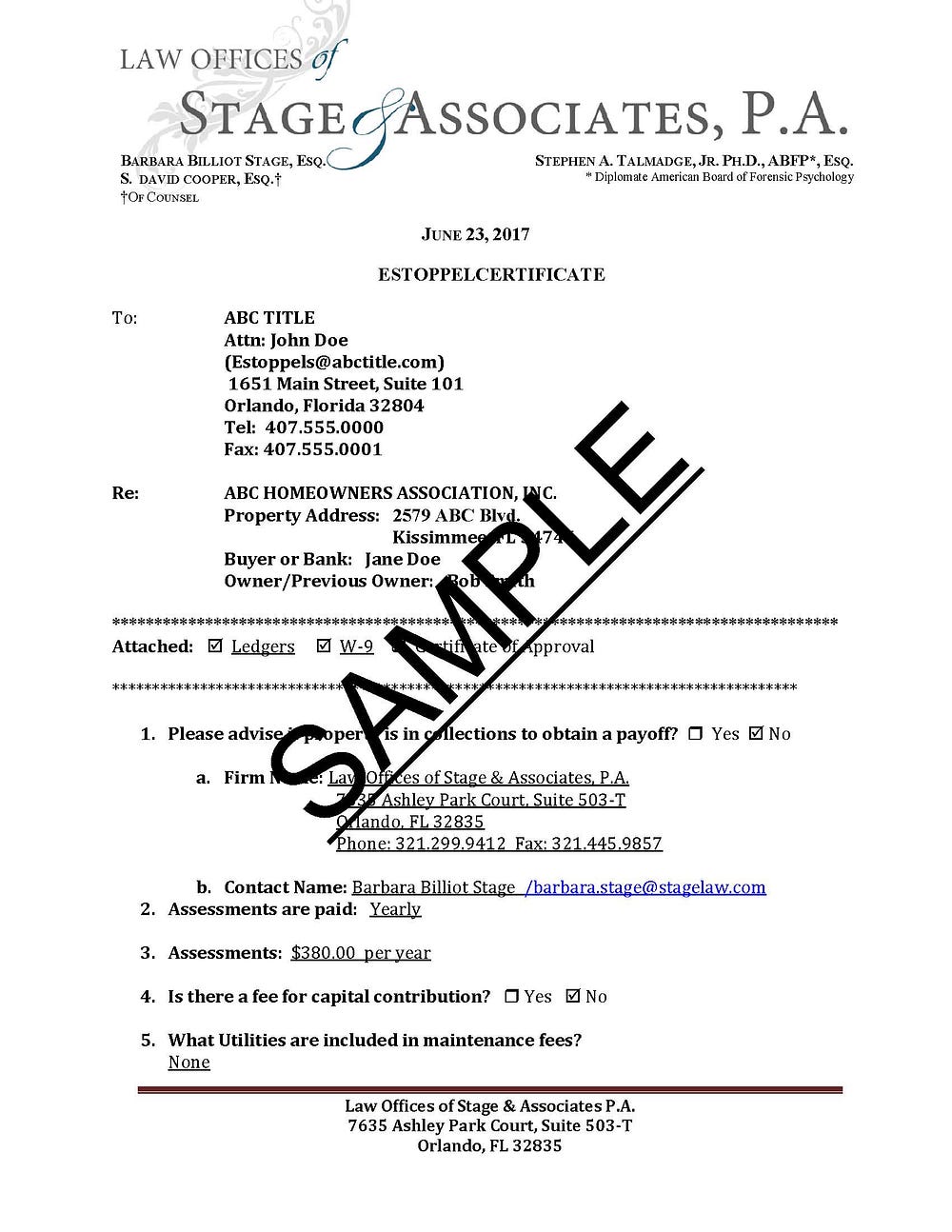After several years of arbitration, a trial de novo, both of which our clients won, and an appeal to the Second District Court of Appeals, my clients have been vindicated. The 2nd DCA came back, rather quickly I might add, with a Per Curiam decision affirming our clients' Final Summary Judgment. For those of you who are not up with the legal terms, Final Summary Judgment is when the court rules your client is entitled to judgment as a matter of law and a trial is not necessary. A Per Curiam decision is one without an opinion. When the appellate courts issue these, it means the losing party cannot appeal to the Florida Supreme Court.
It was a long, hard and stressful road for my clients, who purchased their property in 2013 and received permission to replace the rotted wooden boards on their deck with composite boards. Shortly afterwards, the association accused them of making the deck bigger than the original 1993 deck. This was surprising since the community association manager (CAM), board members, and committee members visited the deck during renovations and never said a word!
The association went as far as to report the clients to Code Enforcement to try and force the removal of the deck. Prior to arbitration, the association demanded complete removal of the approximately 25' x 29' deck. I say approximate because there was never anything in the Declaration of Condominium or Bylaws stating how decks are to be measured and the CAM testified at arbitration there could be 6" to 1' difference depending on the starting and ending points of the measurements.
After 2-1/2 days of arbitration, the arbitrator for the Department of Business & Professional Regulations ruled the association had no evidence of the size of the original deck and the only person to ever measure the deck was the contractor, who the arbitrator found to be credible.
Not to be out done, the association filed for a trial de novo without having any new evidence to support their allegations, claiming basically they thought the arbitrator did not know what she was doing. Our clients were awarded summary judgment after the association attempted to take the depositions of the whole building division for Polk County. I guess their position was our clients were not entitled to their permit, but I would think that would be an issue between the association and the county, not with my clients, who received a permit for their deck.
Half way through the depositions, when I knew I had enough to prove the depositions would not reveal any new evidence or create a genuine dispute of material facts, I filed for summary judgment, which was granted. The judge found there was no evidence to indicate our clients had increased the size of the deck.
The association seemed more determined than ever, claiming they would appeal all the way to the Supreme Court. On appeal, the association attempted to make new arguments with issues not brought up during arbitration or the trial de novo. That is just simply not allowed. Worse yet, the association attorney did not file the transcripts from the summary judgment hearing, so he had no record of any arguments he may have made and could not prove he preserved any objections for appeal. For the record, the trial judge asked him three times if he had any other evidence to present and finally got the association attorney to admit he did not.
Here we are over three years later -- that's over three years of my clients' lives they will not get back. Over three years of a lot of money spent on legal fees, stress and harassment. Yes, harassment. They, along with myself, were the subject of numerous newsletters with the association even claiming, through their non-board member mouthpiece, my clients were suing the association when the opposite was true. My clients have not been able to enjoy their property since this started in October of 2013. So many unit owners bought into the false reports in the newsletters and harassed my clients for "causing trouble." That's just one of the printable statements. Shame on these people for not listening to both sides. My clients are really nice, hardworking people. Shame on the association for having a power-hungry board, commonly known as Condo Commandos in Florida. You thought having a $650,000 slush fund could lead to a win in any case. Do not think for one second we are not aware of the statements made about the slush fund being for the purposes of discouraging those who are not intimidating into doing as you say.
Congratulations to my clients and I hope you now get to enjoy your beautiful Florida home.




